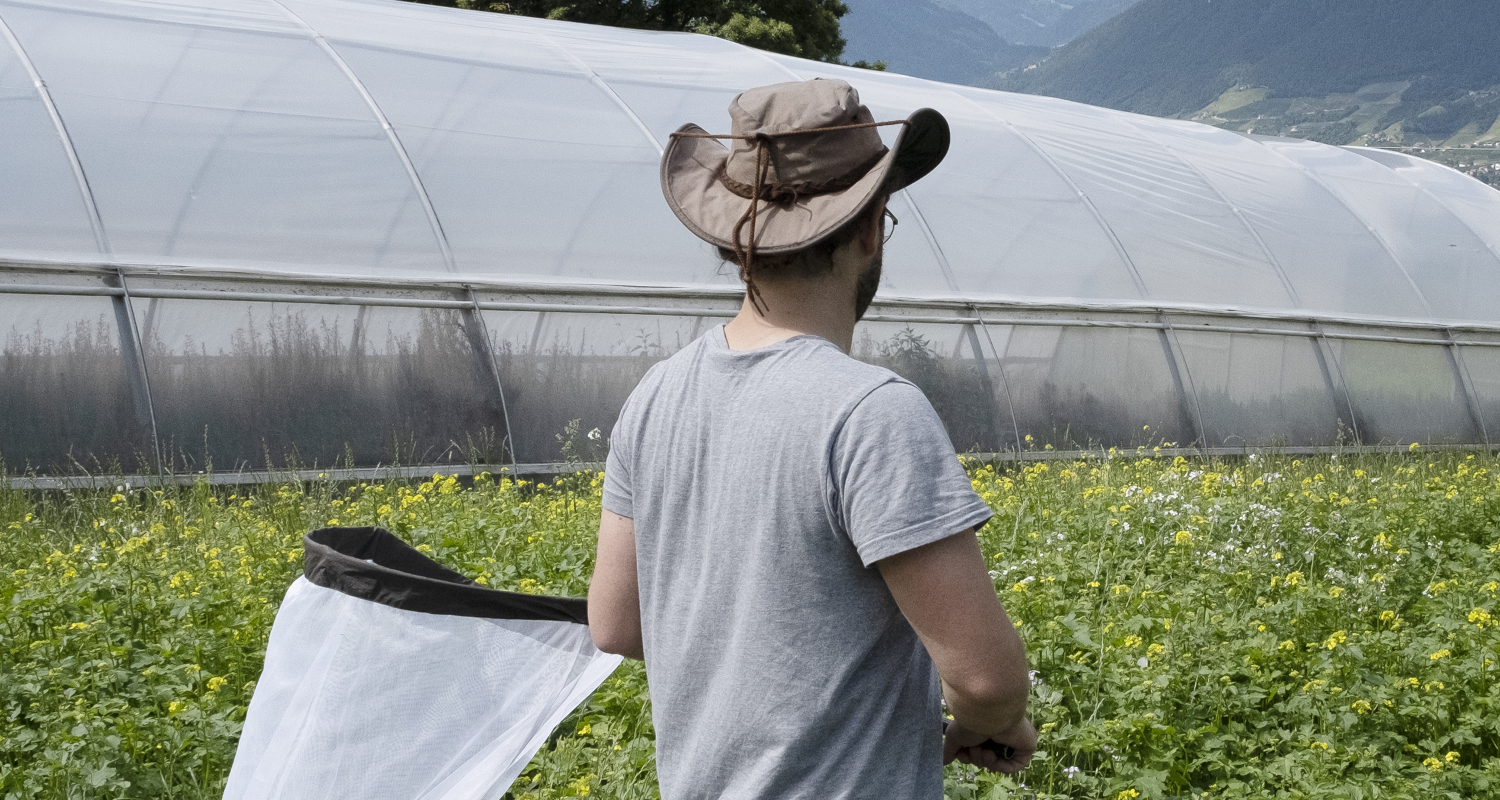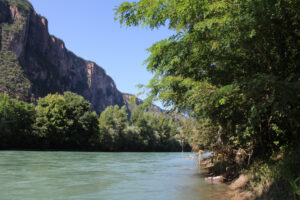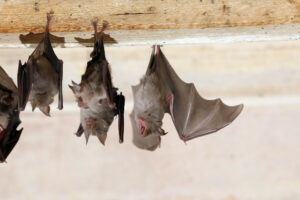Project description and objectives: Herb cultivation represents a niche in South Tyrolean agriculture. Almost 50 farms manage a total of about 20 ha of cultivated area. As a rule, these are small-structured arable fields. In contrast to other arable crops, such as cereals or corn, many different crops are cultivated in a very small area. This results in a large supply of flowers for flower-visiting insects on the one hand, and many forage plants for phytophagous species on the other hand. The latter can sometimes also be harmful for the cultivated plants.
However, systematically collected data on the animal species present in herbaceous crops are not yet available. In the project, this gap shall be closed. The data obtained can give a first insight into the biodiversity in herb cultivation regarding pollinator insects as well as pest and beneficial insect communities. The results are also partly transferable to species-rich home gardens (farm gardens), as the different herbs are often traditionally grown in home gardens.
Methods: Within the project we investigate insect diversity at 3 selected sites (near Merano, Wiesen/Pfitsch and Siusi).
At all three sites we use colored pan traps (blue, white, yellow) to investigate several insect groups, especially those that live in the vegetation (bugs, cicadas), as well as those that use the flowers in the cultivated areas to collect nectar (especially wild bees and hoverflies). The pan traps are deployed on three dates and at four locations per surveyed area. At the site near Merano we also carry out the BMS standard survey program: butterflies, grasshoppers, bats, birds, vascular plants, and soil organisms are surveyed here. These surveys are all carried out according to the standard BMS protocol. In addition to the standard BMS program, a Malaise trap is also used at one site.
The collected data will be published afterwards and will flow into the database of the Museum of Nature South Tyrol and become publicly available.
Partner: Working Group Alternative Crops and Aromatic Plants within the Institute for Mountain Agriculture and Food Technology, Research Centre Laimburg.
Contact: Contact persons for further information are Lisa Obwegs Lisa.Obwegs@eurac.edu and Manuel Pramsohler Manuel.Pramsohler@laimburg.it



